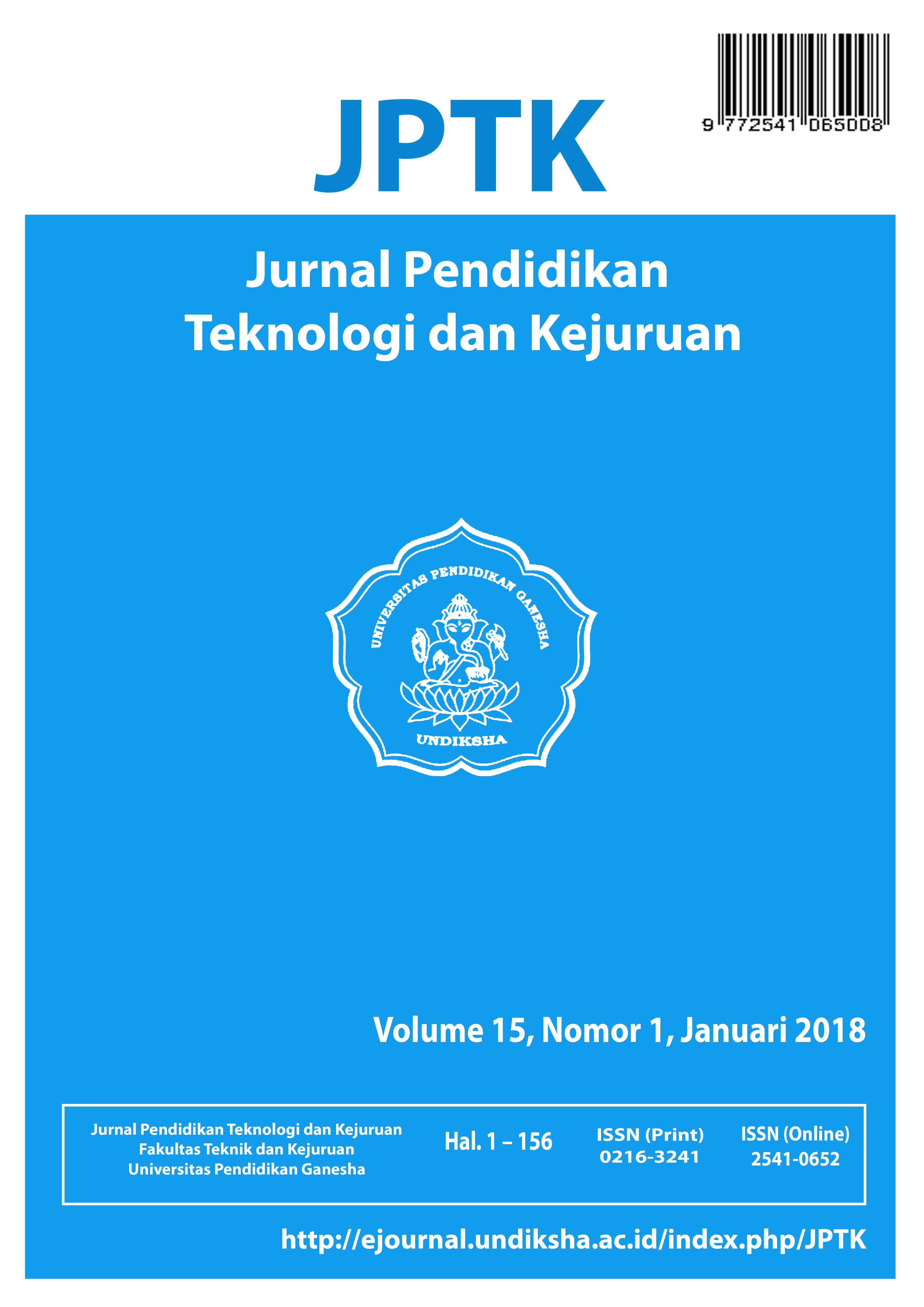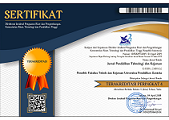THE DEVELOPMENT AND THE EFFECTIVENESS OF ENGLISH E-LEARNING
DOI:
https://doi.org/10.23887/jptk-undiksha.v15i1.11923Abstract
In the twenty first century, teachers are required to have a digital literacy skill. They must be able to integrate technology in learning process. It was already conducted by a teacher in one of public junior high schools in Jakarta. She searched the materials from the internet but she had a problem to adjust the learning materials to her students’ needs and characteristics. Therefore, this study was undertaken to explore deeply how to develop e-learning in English class based on her students’ needs and characteristics and examined its effectiveness. This study employed research and development methodology with qualitative and quantitative approach. The participants were an English teacher and the first graders of junior high school. The result showed that this e-learning consisted of listening, reading, and grammar used PHP, Framework Bookstrap, MySQL, Adobe Flash and Adobe Illustrator to make some animated videos. The result also showed that the learning English using e-learning was more effective than without it. The difference of mean was 5.53 %. It was also different significantly between them (Sig.2-tailed 0.011 < 0.05). It is expected to contribute as supplemental learning media in English learning process.
Key words: E-learning development, e-learning, and English learning
Downloads
Published
Issue
Section
License
Authors who publish with the JPTK agree to the following terms:- Authors retain copyright and grant the journal the right of first publication with the work simultaneously licensed under a Creative Commons Attribution License (CC BY-SA 4.0) that allows others to share the work with an acknowledgment of the work's authorship and initial publication in this journal
- Authors are able to enter into separate, additional contractual arrangements for the non-exclusive distribution of the journal's published version of the work (e.g., post it to an institutional repository or publish it in a book), with an acknowledgment of its initial publication in this journal.
- Authors are permitted and encouraged to post their work online (e.g., in institutional repositories or on their website) prior to and during the submission process, as it can lead to productive exchanges, as well as earlier and greater citation of published work. (See The Effect of Open Access)












